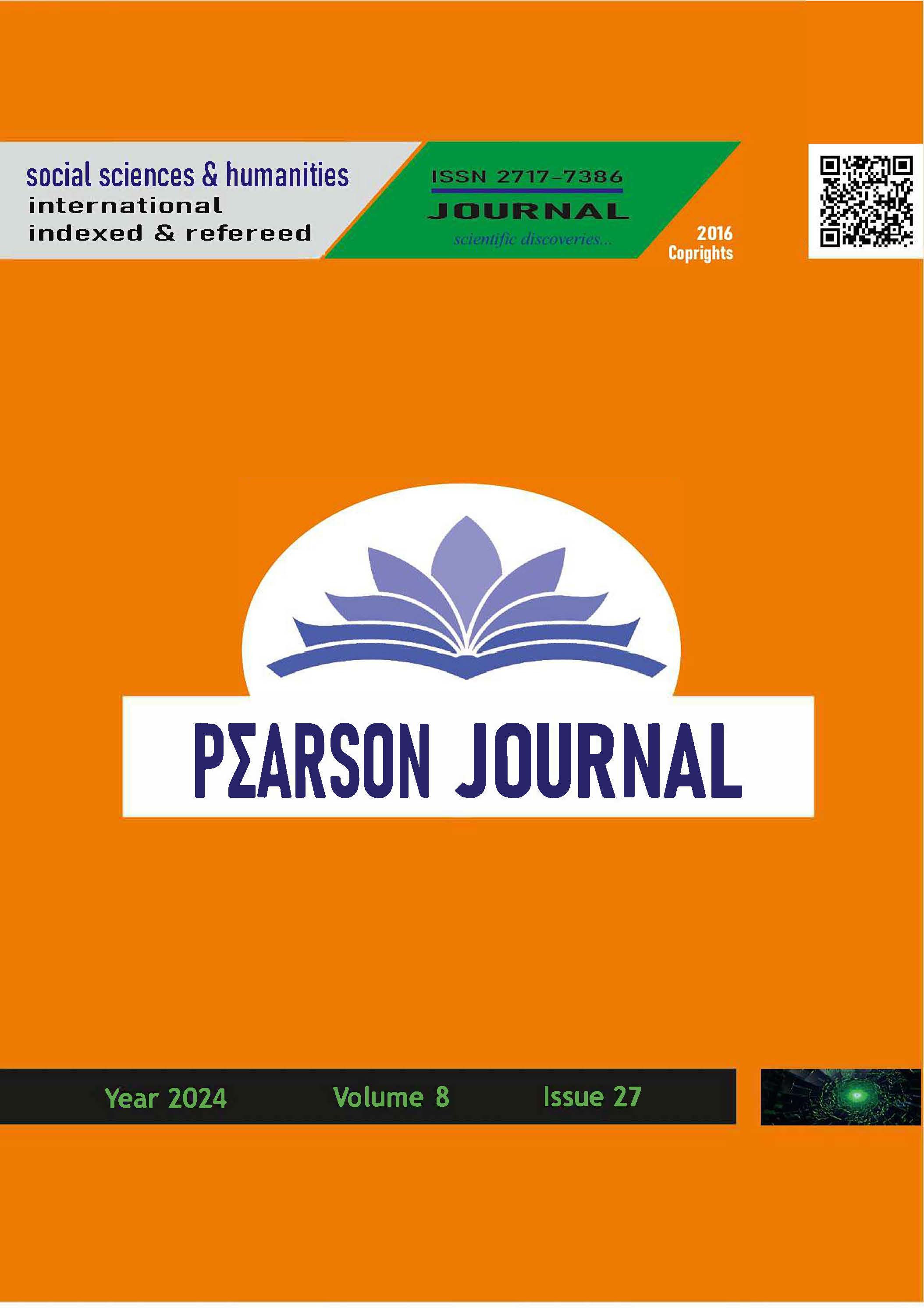Effects of Globalization On Culture
DOI:
https://doi.org/10.5281/zenodo.10852685Keywords:
Globalization, Culture, Homogenization, Polarization, HybridizationAbstract
Globalization, which is named as one of the most important phenomena of today, dates back to the ancient times of human history, to the first acts in which people left their fields and interacted with different cultures. With this feature, the concept, traces of which are found in every moment of the history of civilization, is a power that transforms the world in the 20th century, which is woven with developments in communication and technology, during the years of rapid political, social and economic changes. Today, when the concept of the nation-state is questioned, transnational organizations become effective, and changes are experienced in time and space perception with developing technology, the effect of globalization is remarkable. Globalization, which has caused transformation in all areas of societies from politics to economy, has also been effective on culture. In the universal culture where the weight of the capitalist system has increased and the circulation of cultural products has accelerated, local cultures have changed. What happened as a result of cultures encountering other cultures has been expressed in various theses on the cultural consequences of globalization. The homogenization thesis, which defends that globalization will integrate world cultures, the polarization thesis that approaches the process negatively and states that cultures will come face to face in order to preserve the authenticity of local cultures, and the hybridization thesis, which brings together two views at a common point, and predicts that a hybrid integrity will be formed, reflect their perspectives against the cultural effects of globalization.
References
BALAY, R. (2004), Küreselleşme, Bilgi Toplumu ve Eğitim, Ankara Üniversitesi Eğitim Bilimleri Fakültesi Dergisi, s. 61-82.
BOZKURT, V. (1996), Enformasyon Toplumu ve Türkiye, İstanbul: Sistem Yayıncılık.
ÇARIKÇIL, E. (1998), Son Yüzyılda Dünya Ekonomisi ve Türk Dünyası, Milli Kültürler ve Küreselleşme, Konya.
ÇELİK, C. (2005), Uluslararası Reklamcılıkta Kültürün Etkileri, İstanbul: İstanbul Üniversitesi Basım ve Yayınevi Müdürlüğü.
ÇETİN, B.N. (2008), Küreselleşme Olgusunun Farklı Boyutlarıyla Toplumsal Yansıması: Küreselleşme Karşıtı Hareketler (Türkiye Örneği), Fırat Üniversitesi Sosyal Bilimler Enstitüsü Sosyoloji Anabilim Dalı, Elazığ.
Devlet Planlama Teşkilatı Küreselleşme Özel İhtisas Komisyonu Raporu, (2000), Sekizinci Beş Yıllık Kalkınma Planı, Yayın No: 2544 ÖİK 560, Ankara, s.56.
ERCAN, M. (2010), Küreselleşme ve Türkiye’ye Etkileri, Ankara: Nobel Yayınları.
ERDOĞAN, İ. (2001), Popüler Kültürde Gasp ve Popülerin Gayrimeşruluğu, Doğu-Batı, (Sayı:15), s. 69
GÜVENÇ, B. (2003), İnsan ve Kültür, İstanbul: Remzi Kitabevi.
GÜVENÇ, B. (1985), Kültür Konusu ve Sorunlarımız, İstanbul: Remzi Kitabevi.
İÇLİ, G. (2001), Küreselleşme ve Kültür, C.Ü. Sosyal Bilimler Dergisi, Aralık, 25 (2), 163-172, Sivas.
KOÇDEMİR, K. (1999), Küreselleşme ve Türk Kültürü, Kök Araştırmalar Dergisi, l, l. Ankara.
KOÇDEMİR, K. (2002), Küreselleşme; Koordinatları Okumak, İstanbul: Ötüken Neşriyat.
McLUHAN, M. (2017), Gutenberg Galaksisi, ( G. Ç. Güven, Çev.), İstanbul: Yapı Kredi Yayınları.
ODABAŞI, Y. , BARIŞ G. (2002), Tüketici Davranışı, İstanbul: MediaCat Kitapları, 2. Baskı,
OSKAY, Ü. (1974), Kültürün Özelikleri ve İçerikleri, A.Ü.S.B.F. Yıllığı, (s. 281), Ankara.
ÖZÇETİN, B. (2018), Kitle İletişim Kuramları, İstanbul: İletişim Yayınları.
ÖZKUL, O. (2008), Kültür ve Küreselleşme “Kültür Sosyolojisine Giriş”, İstanbul: Açılım Kitap.
SOROS, G. (2003), Küreselleşme Üzerine, (M. Keçik, Çev.), İstanbul: İstanbul Bilgi Üniversitesi Yayınları.
TALAS M., KAYA, Y. (2007), Küreselleşmenin Kültürel Sonuçları, TÜBAR, Ankara.
THOMPSON, J. B. (2008), Medya ve Modernite, (S. Öztürk, Çev.), İstanbul: Kırmızı Yayınları.
TOPÇU, F. (2017), Kültürel Küreselleşme ve Televizyon, (Yüksek Lisans Tezi), Cumhuriyet Üniversitesi Sosyal Bilimler Enstitüsü, Sivas.
ULUÇ, G. (2008), Küreselleşen Medya: İktidar ve Mücadele Alanı, İstanbul: Anahtar Yayınlar Kitapevi.
YAMAN, H. 2017), Küreselleşme ve Medya İlişkisi: Yerel Yayıncılık Modelleri ve Türkiye Örneği. (Doktora Tezi), İstanbul Üniversitesi Sosyal Bilimler Enstitüsü, İstanbul.
YILDIZ, S. (2006), Kültürün Küreselleşmesi ve Toplumsal Boyutta Medya Etkinliğine Yansımaları, Hacettepe Üniversitesi Edebiyat Fakültesi Dergisi, 23(2), 33-44.
YILMAZ, A. (2004), İkinci Küreselleşme Dalgası; Kavram Süreç ve Sorunlar, Ankara: Vadi Yayınları.
TALAS M., K, Y. (2007) , Küreselleşmenin Kültürel Sonuçları. TÜBAR.
Downloads
Published
How to Cite
Issue
Section
License
Copyright (c) 2024 PEARSON JOURNAL

This work is licensed under a Creative Commons Attribution 4.0 International License.



